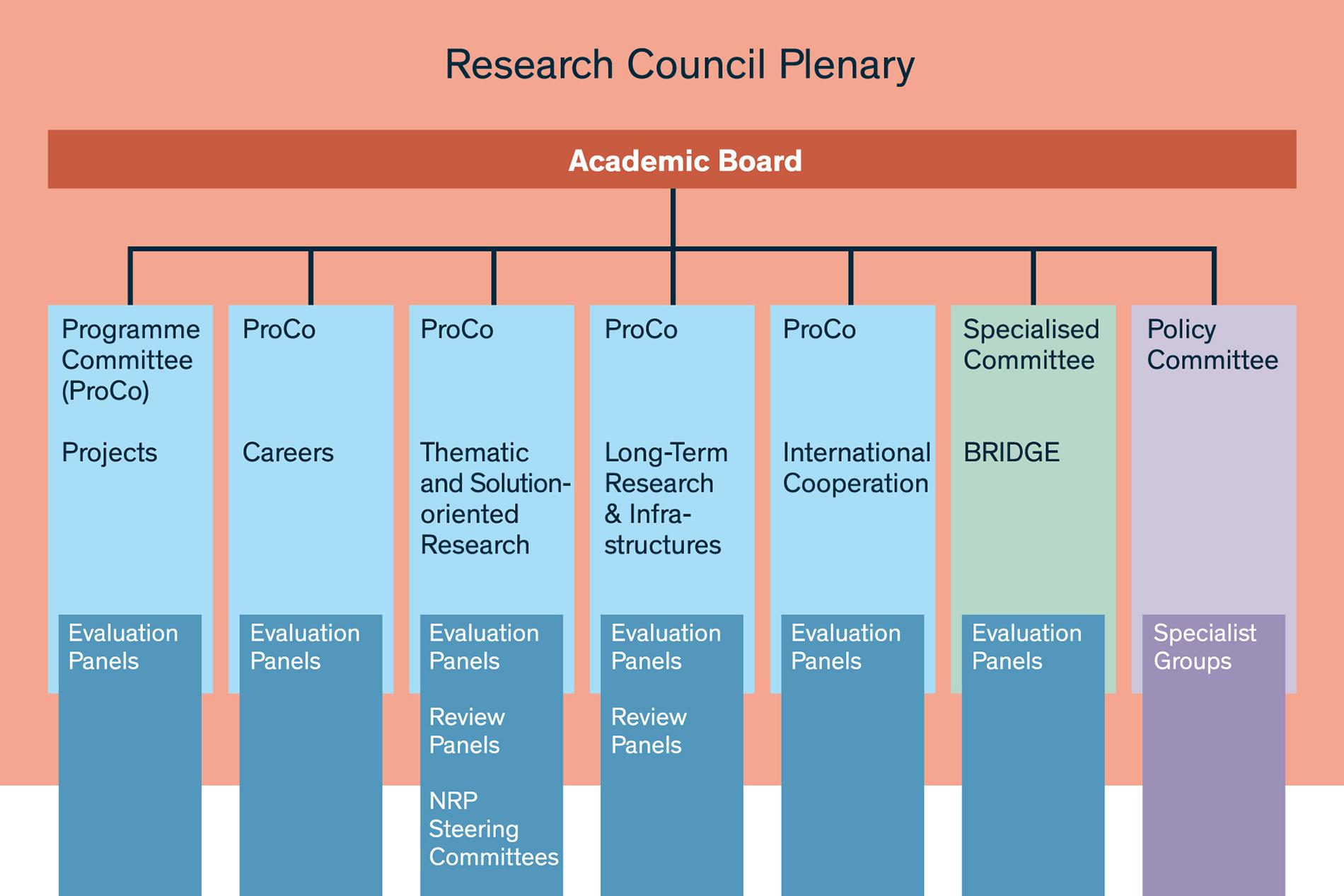Research Council and evaluation bodies

The Research Council of the SNSF evaluates several thousand applications each year and makes funding decisions. It is composed of 80 researchers, most of whom work at Swiss higher education institutions. The Research Council is supported by between 80 and 100 evaluation bodies comprising about 1000 members in total.
Research Council of the SNSF
The Research Council consists of a Policy Committee and five Programme Committees. It is led by the Academic Board.
- Policy Committee
- Programme Committee Projects
- Programme Committee Careers
- Programme Committee International Cooperation
- Programme Committee Long-term Research and Infrastructures
- Programme Committee Thematic and Solution-oriented Research
In addition to the committees, the Research Council appoints panels and bodies in various disciplines to carry out specialised evaluation tasks.
The Academic Board is responsible for defining funding policy, allocating roles within the Research Council and ensuring the quality and fairness of the evaluation procedures for the researchers and projects that the SNSF supports. The members of the Academic Board are elected for a four-year term of office, renewable once.
Evaluation bodies
The evaluation bodies evaluate proposals and lay the groundwork for the funding decisions made by the Research Council. The members of these bodies are for the most part researchers working at higher education institutions. A third are women, and a third work at institutes based abroad.
Academic Board
Since January 1, 2025, the Academic Board has been composed of:
- Torsten Schwede (PDF), President
- Laura Bernardi, Vice President in charge of funding policy
- Stuart Lane, Vice President in charge of research funding
- Kathryn Hess Bellwald, Academic Board member
- Nicolas Rodondi, Academic Board member
- Rainer Wallny, Academic Board member
- Katrin Milzow (PDF), co-director of the SNSF, member in an advisory capacity without voting rights
- Thomas Werder Schläpfer (PDF), co-director of the SNSF, member in an advisory capacity without voting rights